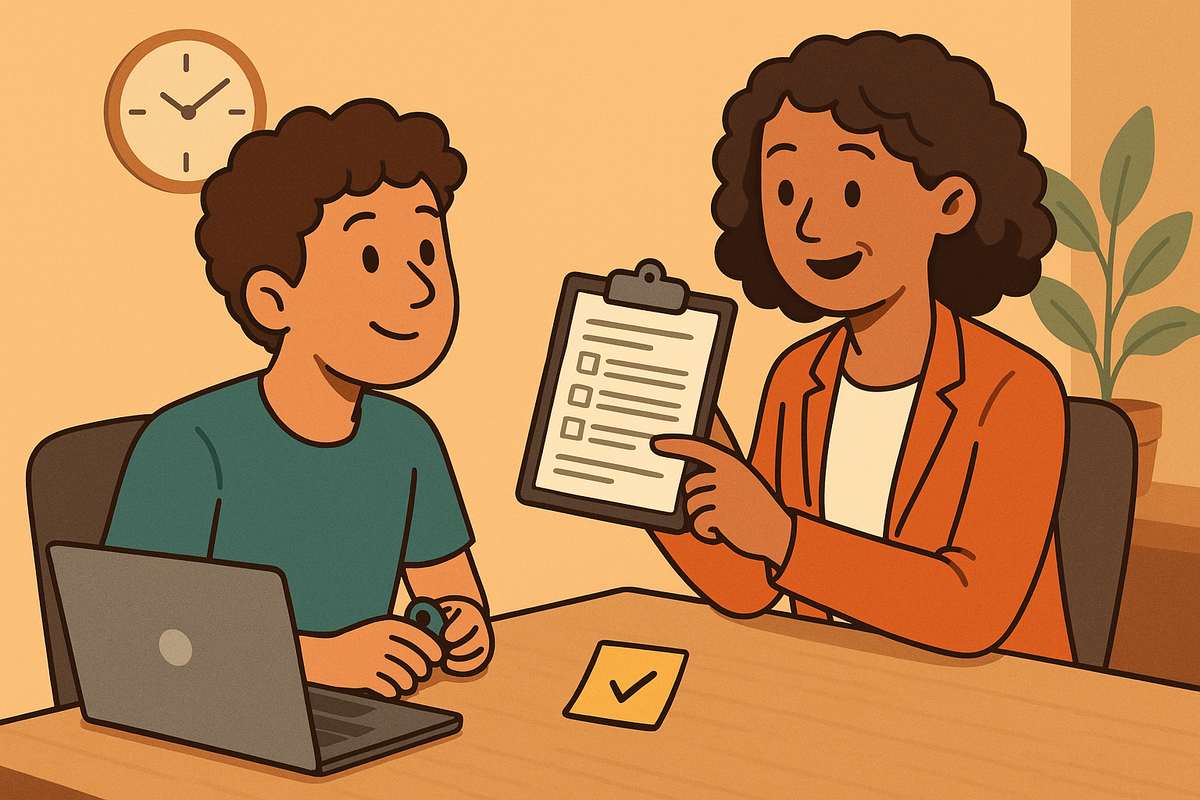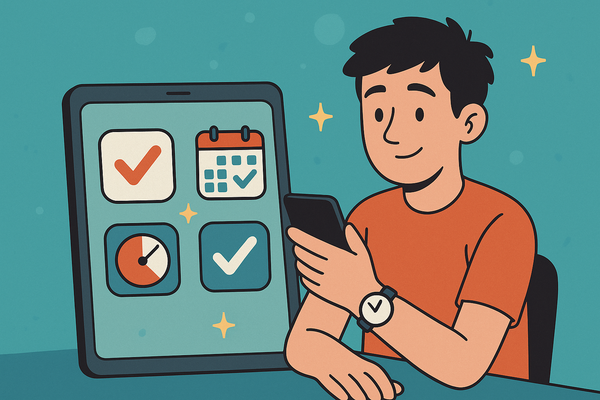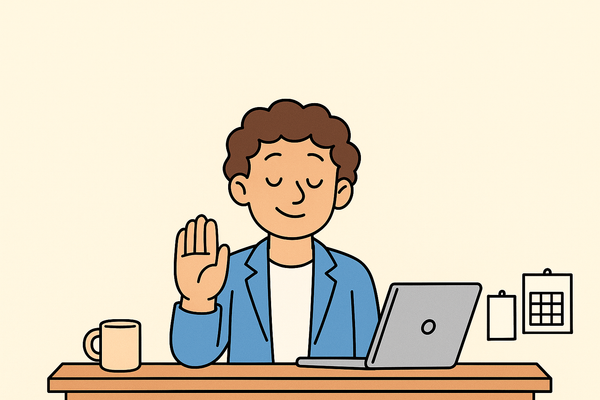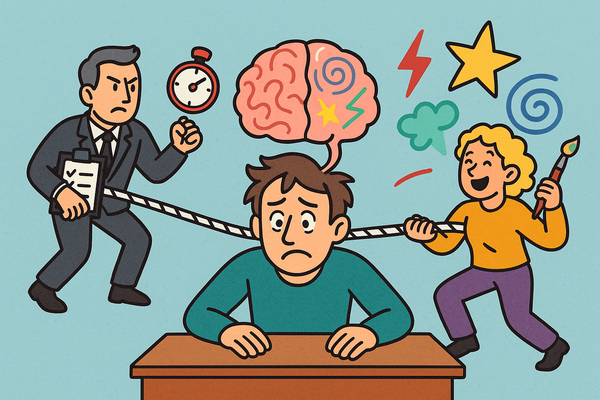2025 ADHD Workplace Accommodation Templates You Can Actually Use

I spent three years being “the employee who worked twice as hard to look half as competent” before I finally asked for workplace accommodations. Not because I didn’t know I had rights, but because I had no idea what to actually ask for or how to ask for it without sounding like I was making excuses.
The accommodation request templates I found online were either so generic they were useless (“provide a quiet workspace”) or so clinical they sounded like they were written by someone who’d never actually worked in an office. What I needed was something that translated my daily ADHD struggles into professional language that my manager could understand and act on.
After successfully navigating accommodations at three different companies and helping dozens of others do the same, I’ve learned that the key isn’t just knowing your rights — it’s knowing how to communicate your needs in a way that makes sense to people who’ve never lived in an ADHD brain.
Here are the templates and strategies that actually work in 2025.
Before You Start: The Foundation
Know your legal standing: Under the Americans with Disabilities Act (ADA), employers with 15 or more employees must provide reasonable accommodations. ADHD qualifies as a disability under the ADA, even if you don’t think of yourself as “disabled.”
Document everything: Keep records of your accommodation requests, your employer’s responses, and how the accommodations are working. This isn’t just for legal protection — it helps you refine what you need.
Start with self-advocacy: You don’t need to disclose your ADHD diagnosis immediately. Many accommodations can be framed as general productivity improvements that benefit everyone.
Template 1: The Initial Conversation Starter
Use this when you’re ready to have the conversation but want to test the waters first.
Hi [Manager’s Name],
I’d like to schedule a brief meeting to discuss some adjustments to my work environment that would help me be more productive and deliver better results. I’ve identified a few specific changes that would improve my focus and output quality.
Would you have 15-20 minutes this week to discuss this? I’m happy to put together a brief overview of what I’m thinking beforehand.
Thanks,
[Your Name]
Why this works: It frames accommodations as productivity improvements, not special requests. It’s collaborative rather than demanding, and it shows you’ve thought this through.
Template 2: The Formal Accommodation Request
Use this when you’re ready to formally request accommodations and disclose your ADHD.
Dear [Manager/HR Representative],
I am writing to formally request workplace accommodations under the Americans with Disabilities Act (ADA). I have been diagnosed with Attention Deficit Hyperactivity Disorder (ADHD), which impacts my ability to [specific impacts - choose from list below].
To perform the essential functions of my job effectively, I am requesting the following reasonable accommodations:
[Choose relevant accommodations from templates below]
I believe these accommodations will enable me to maintain the same level of productivity and quality that has characterized my work, while allowing me to better manage the symptoms that can interfere with my job performance.
I am happy to provide medical documentation if required and to discuss how we can implement these accommodations in a way that works for both the team and the company.
I would appreciate the opportunity to meet and discuss this request at your earliest convenience.
Thank you for your consideration.
Sincerely,
[Your Name]
Specific Accommodation Templates by Challenge
For Executive Function Issues
“I struggle with prioritizing tasks and often get overwhelmed by competing deadlines.”
The Ask:
I am requesting the following accommodations to help manage executive function challenges:Weekly priority setting meetings (15 minutes) with my supervisor to clarify task priorities and deadlinesWritten project instructions and deadlines provided via email or project management software rather than verbal instructions onlyPermission to use task management tools (such as digital calendars with alerts, project management apps) during work hoursAdvance notice of deadline changes when possible, with 24-48 hours minimum notice for shifting priorities
These accommodations will help ensure I’m focusing my energy on the highest-priority tasks and delivering work that meets expectations.
For Attention and Focus Issues
“Open offices and constant interruptions make it impossible for me to concentrate.”
The Ask:
I am requesting the following accommodations to address attention and focus challenges:A quieter workspace or permission to work from a less trafficked area of the officeUse of noise-canceling headphones during focus work periodsBlocked focus time on my calendar (2-3 hour blocks) during which I am not available for meetings or non-urgent questionsPermission to work remotely 1-2 days per week when deep focus work is requiredWritten communication for non-urgent requests rather than drop-in conversations
These accommodations will help me maintain concentration on complex tasks and reduce the time lost to regaining focus after interruptions.
For Time Management and Organization
The Ask:
I am requesting the following accommodations to address time management challenges:Flexible start times within a 30-60 minute window (e.g., 8:30-9:30 AM) with consistent end timesPermission to attend meetings virtually when scheduling conflicts arise due to time management challengesBuffer time between meetings (minimum 15 minutes) to allow for transition and preparationProject timeline templates that break large projects into smaller milestones with interim deadlinesRegular check-ins for long-term projects to ensure I’m on track
These accommodations will help me better manage my schedule and meet deadlines consistently.
For Sensory Processing Issues
The Ask:
I am requesting the following accommodations to address sensory processing challenges:Desk lamp instead of overhead lighting when possiblePermission to use noise-canceling headphones or work in quieter areasFlexible seating options (standing desk, different chair) to help with fidgeting and movement needsTemperature control considerations such as seating away from air conditioning ventsBreak time flexibility to step outside or take brief movement breaks as needed
These accommodations will help reduce sensory overload and maintain consistent energy levels throughout the day.
Like what you’re reading? Get weekly ADHD news, tools, and creative strategies delivered straight to your inbox.
For Meeting and Communication Challenges
The Ask:
I am requesting the following accommodations for meetings and communication:Meeting agendas provided in advance (24 hours minimum) with key discussion points outlinedWritten follow-up after meetings summarizing action items and deadlinesPermission to record meetings for personal reference (where legally permissible)Shorter meeting durations when possible, with breaks for meetings longer than 90 minutesOption to participate virtually in non-essential meetings to reduce meeting fatigue
These accommodations will help ensure I can fully participate in discussions and follow through on commitments made during meetings.
Template 3: The Follow-Up After Accommodation Implementation
Use this 30-60 days after accommodations are put in place.
Hi [Manager’s Name],
I wanted to follow up on the workplace accommodations we implemented [timeframe] ago and share how they’re working.
What’s working well:
- [Specific accommodation] has helped me [specific improvement]I’ve noticed [measurable improvement - e.g., “fewer missed deadlines,” “better focus during afternoon meetings”]
- I’ve noticed [measurable improvement - e.g., “fewer missed deadlines,” “better focus during afternoon meetings”]
What might need adjustment:
- [Any accommodations that aren’t working as expected]
- [Suggestions for minor modifications]
Overall impact:
[Brief summary of how the accommodations have improved your work quality, productivity, or job satisfaction]
I appreciate your support in making these changes. Would you like to schedule a brief check-in to discuss this further?
Thanks,
[Your Name]
When Accommodations Get Pushback
“We can’t do that because it wouldn’t be fair to other employees.”
Response: “I understand the concern about fairness. Accommodations aren’t about giving me an advantage — they’re about removing barriers that prevent me from performing at the same level as my colleagues. Just like providing a ramp for someone who uses a wheelchair isn’t ‘unfair’ to people who can walk stairs.”
“This seems like a lot of special treatment.”
Response: “I’m happy to start with just one or two accommodations to see how they work. Many of these changes — like written meeting follow-ups and advance notice of deadline changes — actually benefit the whole team.”
“Can’t you just try harder to focus/be on time/stay organized?”
Response: “I’ve been working on these skills for years, and I’ve made significant improvements. These accommodations aren’t about trying less hard — they’re about having the right tools to channel my efforts effectively.”
Digital Tools to Support Your Accommodations
Task Management
- Notion or Asana for project breakdown and tracking
- Todoist with natural language scheduling
- Time blocking apps like Clockify or RescueTime
Focus and Attention
- Brain.fm or Focus@Will for concentration music
- Cold Turkey for website blocking during focus time
Communication
Implementation Timeline
Week 1: Identify your primary challenges and choose 2-3 key accommodations to request
Week 2: Schedule initial conversation with your manager using Template 1
Week 3: Submit formal request if needed using Template 2
Week 4-6: Work with your manager/HR to implement accommodations
Month 2: Assess effectiveness and provide feedback using Template 3
Month 3: Make adjustments as needed
Legal Protections and Resources
Know your rights: Employers cannot retaliate against you for requesting accommodations. They also cannot ask about the nature or severity of your disability — only what accommodations you need.
Get help if needed:
- Job Accommodation Network (JAN) provides free accommodation consulting
- Equal Employment Opportunity Commission (EEOC) handles discrimination complaints
- Your state’s disability rights organization can provide local resources
Document everything: Keep copies of all accommodation requests, responses, and implementation discussions. This creates a paper trail that protects you and helps track what works.
The Real Talk About Accommodations
Asking for accommodations isn’t admitting defeat — it’s acknowledging that you understand how you work best and you’re committed to doing your job effectively. Some managers will be immediately supportive. Others might need education. A few might push back.
But here’s what I’ve learned: most resistance comes from misunderstanding, not malice. When you can clearly explain how accommodations will help you do better work (not just make your life easier), most reasonable managers will work with you.
The accommodations that changed everything for me weren’t dramatic: written meeting follow-ups, permission to use noise-canceling headphones, and a 9:30 AM start time instead of 9:00 AM. Small changes that removed daily friction and let me focus on doing good work instead of constantly fighting my brain.
Your ADHD brain isn’t broken — it just needs the right environment to thrive. These accommodations aren’t crutches; they’re tools that level the playing field so your actual skills and contributions can shine through.
You deserve to work in an environment where you can succeed. Don’t let uncertainty about the process keep you from asking for what you need.
Looking for more workplace strategies? Check out our article on navigating ADHD masking at work and building systems that work with your brain.
Resources:




